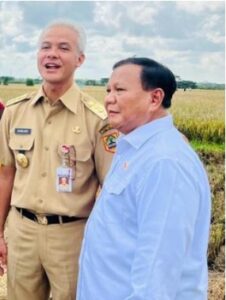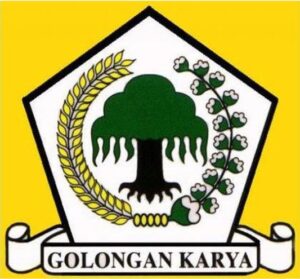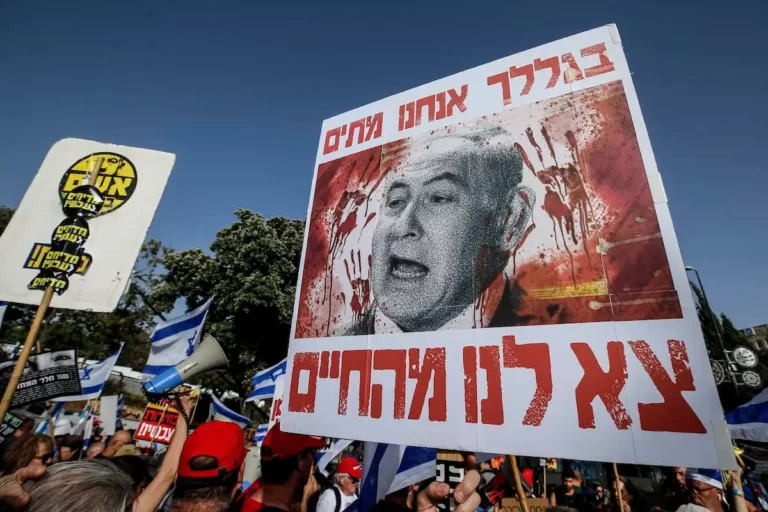
Foto Parpol yang akan diikut Pemilu 2024 ditambah Partai Ummat
STRATEGIC ASSESSMENT. With the official start of the campaign season less than four months away, presidential hopefuls have begun drawing up plans and holding dialogues with young voters in hopes of making themselves more appealing to the age group, which is widely tipped to be key in winning next year’s election.

According to the General Elections Commission (KPU), 106 million voters, or around 52 percent of the 204 million total eligible voters, are considered young people, or those younger than 40. A closer look at the voter roll shows that a third of all registered voters are millennials, while a further 22 percent belong to Generation Z, or those born in the late 1990s and onward.
Minister of Defense Prabowo Subianto again praised President Joko Widodo’s leadership. He said he was proud to be part of the Jokowi and Ma’ruf Amin governments because a number of successes had been achieved.
“This is due to the leadership of Pak Joko Widodo and his ministers. I am the Indonesian team. The captain of the Indonesian team is Joko Widodo. I am a member of that team. [I can] be proud,” said Prabowo while attending an event in Makassar, South Sulawesi.

“I am proud to be part of the government led by President Joko Widodo even though I fought against him twice,” Prabowo said in front of thousands of village heads in Makassar.
According to Ika Krismantari, chief editor and content director at The Conversation Indonesia and Nurul Fitri Ramadhani is the politics and society editor at the same non-profit organisation which publishes news analysis and academic research, Indonesia, the world’s third-largest democracy, will hold the planet’s biggest one-day election next year. More than 200 million voters in Indonesia and 1.75 million members of the Indonesian diaspora will go to the polls on Feb 14, 2024, to elect the country’s next president and vice president, as well as legislators and councillors at both national and regional levels. The total number of voters expected accounts for 74 per cent of the total population of Southeast Asia’s largest economy.
According to Helen Pausacker, the deputy director of the Centre for Indonesian Law, Islam and Society and an editor of the Australian Journal of Asian Law, in the three elections since Indonesia has been holding direct presidential elections – 2009, 2014 and 2019 – there have been only two candidates for the top job. But when registration opens on 19 October 2023, is it likely we will see three people vying for the top job: Prabowo Subianto, Ganjar Pranowo and Anies Baswedan.
This makes a run-off election between the top two candidates more likely. Recent opinion polls indicate Anies is unlikely to make the second round of presidential candidates. But, regardless, he seems determined to stay in the running, with support from the Coalition of Change for Unity. This is made up of the National Democrat Party (NasDem), the Prosperous Justice Party (PKS), and the Democratic Party (Partai Demokrat).
According to Pizaro Gozali Idrus, journalist at the Anadolu Agency, Indonesia’s relationship with China will be a key issue in the 2024 presidential election, with two of the three candidates appearing to have a pro-Beijing tilt, a new policy brief says. The future leader will have to navigate tricky terrain because China is Indonesia’s top foreign source of investment while also viewed as a threat to the territorial sovereignty of Southeast Asia’s largest country.
The three Indonesian presidential hopefuls are vying to succeed Joko “Jokowi” Widodo, who has forged a close relationship with Beijing, Jakarta think-tank CELIOS said in its brief released. Among the contenders, former Jakarta Gov. Anies Baswedan seems to be the only one skeptical of China, which is vying with its number one rival, United States, for influence in Southeast Asia.

Candidate Ganjar Pranowo, who is from Jokowi’s party and is governor of Central Java province, is expected to continue his predecessor’s policy, according to CELIOS. And on the face of it, it appears that the third contender, Prabowo Subianto, the defense minister who is a former army general, may also continue Jokowi’s policy, CELIOS said. For instance, Prabowo, as defense chief, sought to boost military cooperation with Beijing.
Golkar Party chairman Airlangga Hartarto appeared to have consolidated his position despite a leadership challenge raised by some of his colleagues, ministers serving President Joko “Jokowi” Widodo in his second and final term in office. But the direction of the country’s oldest party in the upcoming presidential race will still likely hinge on the preferences of Jokowi, a member of the ruling Indonesian Democratic Party of struggle (PDI-P) who still has some influence over voters given his high ratings in opinion polls.

Tension within Golkar has been brewing over the past month as it suffers a dip in popularity and internal bickering on which presidential candidate to nominate for the February election. This prompted Golkar politicians Luhut Pandjaitan and Bahlil Lahadalia, both of whom are members of Jokowi’s cabinet, to express their readiness to take over Airlangga’s post in an extraordinary congress.








